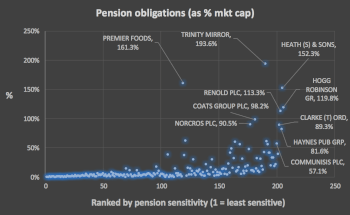Hogg Robinson (HRG) has combined a strong set of financials with a declaration of medium-term growth initiatives in both travel management and FinTech. Importantly, their implementation should be facilitated by the success of management’s largely completed restructuring and deleveraging programme. While there will be a short-term cost (we are reducing our current-year PBT forecast by 17%), this is wholly related to stated opex investment rather than any business deterioration (our revenue forecast is unchanged). Robust finances (FY17 net debt/EBITDA of just 0.3x) should allow continued dividend growth (FY17 cover of 3.0x).

30 May 2017
On a journey

Sign up for free to access
Get access to the latest equity research in real-time from 12 commissioned providers.
Get access to the latest equity research in real-time from 12 commissioned providers.
On a journey
Hogg Robinson Group (HRG:LON) | 0 0 0.0% | Mkt Cap: 383.3m
- Published:
30 May 2017 -
Author:
Richard Finch -
Pages:
3 -

Hogg Robinson (HRG) has combined a strong set of financials with a declaration of medium-term growth initiatives in both travel management and FinTech. Importantly, their implementation should be facilitated by the success of management’s largely completed restructuring and deleveraging programme. While there will be a short-term cost (we are reducing our current-year PBT forecast by 17%), this is wholly related to stated opex investment rather than any business deterioration (our revenue forecast is unchanged). Robust finances (FY17 net debt/EBITDA of just 0.3x) should allow continued dividend growth (FY17 cover of 3.0x).



